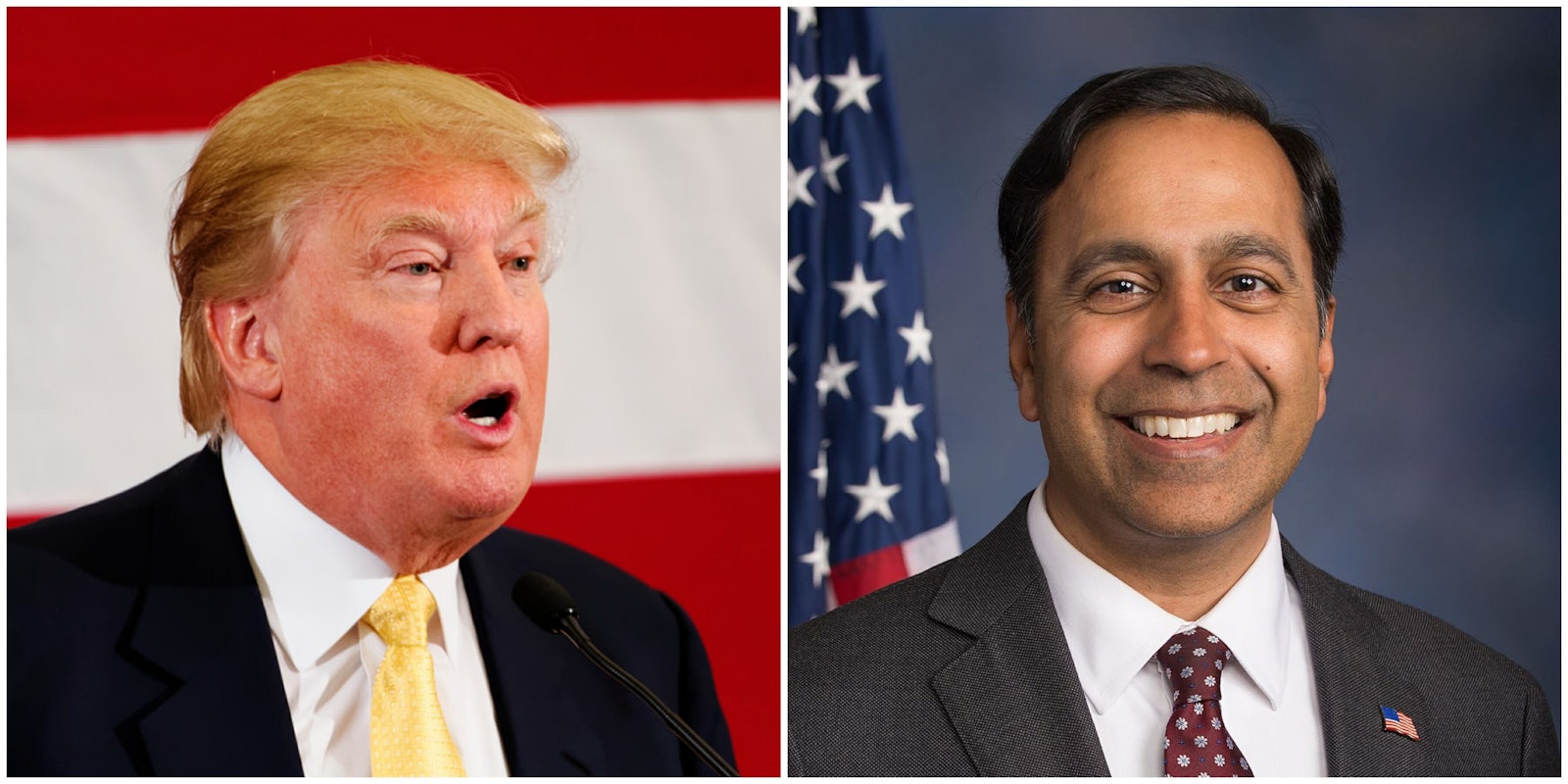A Democratic congressman has demanded the White House make all presidential pardons public after reports that President Donald Trump and his team questioned whether he can pardon members of his family and possibly himself.
Rep. Raja Krishnamoorthi of Illinois sent a letter to White House Counsel Donald McGahn on Friday. The congressman argues in the letter that the public deserves to know whether members of the Trump team who may be under investigation as part of the federal probe into Russian election interference have received a presidential pardon.
Robert Mueller, a former FBI director, is currently investigating the Trump team’s potential illegal activity related to Russia’s meddling in the 2016 presidential election. Trump, Vice President Mike Pence, Trump’s adviser and son-in-law Jared Kushner, and other members of the Trump administration have retained legal teams in response to the ongoing probe.
The Washington Post reported on Thursday that Trump asked his legal team whether he could pardon his aides, family members, and himself in connection to Mueller’s Russia investigation.
Presidents have an unmitigated power to pardon anyone for federal offenses. However, as Krishnamoorthi explains in his letter, these pardons may not be made public. A president also has no obligation to provide a reason for granting a pardon or clemency to the Office of the Pardon Attorney, which handles presidential pardons. Further, a president may preemptively pardon an individual, which would make them immune to future prosecution.
“Special Prosecutor Mueller’s investigation into Russian interference in the 2016 election is a matter of utmost importance to the health of our Republic,” Krishnamoorthi writes. “Americans deserve to know the full extent of this meddling and the harm it caused. Those who aided and abetted it must be brought to justice. Preemptive pardons will only serve to further obfuscate the truth behind a fog of deceit.”
No president has pardoned himself, which means the legality of such an action has not been tested. Department of Justice guidance, however, asserts that a president may not be indicted while in office. After leaving office, the former president would no longer hold the power to issue pardons. Legal scholars may argue that the Founding Fathers did not intend for presidents to have the power to self-pardon. In the Federalist Papers: No. 65, Alexander Hamilton wrote that, following impeachment, a president “will still be liable to prosecution and punishment in the ordinary course of law.”
Courts have repeatedly upheld preemptive pardons. President Gerald Ford famously pardoned President Richard Nixon, who had not been charged with any crimes. In reviewing that case, the Supreme Court ruled that pardons may be granted “before federal charges are brought, after conviction and sentencing, or anytime in between.”
The White House did not immediately respond to a request for comment.


